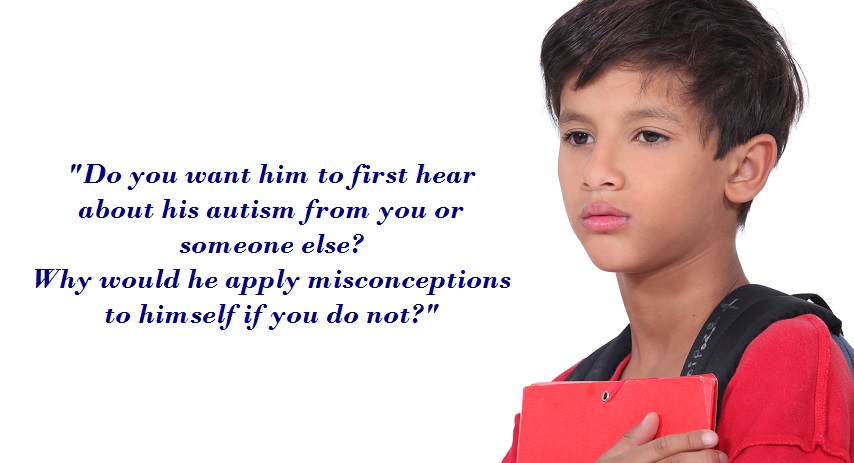A parent asks: Our son is finishing his first year of middle school. The IEP goals offered by the school team, from the first section to the last, are completely inappropriate and almost irrelevant to his recent developmental changes.
We can pinpoint the academic problems he had sixth grade and carry them forward into seventh grade. But there are other issues I’m unsure about, and the IEP team seems just as uncertain as we are about defining specific needs to address in order to make this new IEP applicable and measurable.
Moreover, we never anticipated that puberty would bring about so many changes! We prepared ourselves for the academic differences between elementary and middle school, but we are shocked at how much our little fifth grader has changed in less than a year.
We are also dealing with the question of whether he’s mature enough to discuss his autism. At 12, we haven’t talked to him about this, and he’s never asked. We ache at the thought of his having to deal with the misconceptions and baggage and come with the label. Do kids with autism know all about it at age 12?

Ellen answers: Your first question has the easy answer: An IEP is never set in stone. You have the right to reconvene the IEP team and make changes to the document at any time you have concerns. Educators know that children progress and change at different rates, accelerating and stalling in fits and starts as they go along, and that’s why the IEP has to be a fluid process. You can only prepare the best possible document you can in the moment, with the understanding that you will want to revisit it as soon as you feel it’s outdated or otherwise not pertinent. Of course, you cannot be completely sure about what lies ahead; if you were, you’d be making a fortune on Wall Street. It’s OK to be uncertain, make a cultivated and coordinated team proposal with the information you have now, and do it knowing that the special education law is on your side. The school cannot refuse your request to reconvene the IEP team.
I hear ya on the rockiness of moving to seventh grade. For us, seventh grade was much more of a boat-rocker than was sixth grade. One of our teachers put it this way: Most parents and kids assume that the transition from fifth grade to sixth, elementary school to middle school, will be a big transition. And it is. But the transition to seventh grade can be even bigger, and gets relatively little attention. Our teacher viewed seventh grade as where the teachers really stop “nurturing” (she even used the word “coddling”) students and lay on the work and the expectations for independence. At the same time, the kids are hitting their teens with all the bodily changes of puberty, mood swings, peer pressures, the beginnings of wanting to break away from their parents. And if a child must also layer on a growing awareness of a difference or disability, you do indeed have a very volatile brew.
Autism awareness is exponentially higher now than it was when my son was in middle school, but even so, many kids arrive at adolescence without knowing much about their autism and what makes them learn and socialize differently. One therapist told us that middle school is a time when kids really begin to question the take-outs for speech therapy or other services; she’s often asked, “Why am I here?” Those can be tender times. My son experienced some anger and frustration but, with time and lots of gentle but honest talks with trusted adults and friends, moved through it to the place he really needed to be—understanding both his strengths and his needs so he could learn to use the former to ask for help with the latter. That’s called self-advocacy, and is one of the most necessary life skills of all if your child is to achieve meaningful independence as an adult. Twelve years old is prime time for that learning. But don’t waste any time bemoaning that you didn’t start sooner. As you’ve already noted, the arrival of puberty can change the child and the journey quite a lot!
Here are some questions and thoughts that might help you decide how to proceed:
Do you want him to first hear about his autism from you or someone else?
Why would he apply misconceptions to himself if you do not?
Do you and the other adults in his life talk about his strengths in greater proportion than his struggles? If not, why not?
There’s the possibility that he already knows he has autism, or that something about him is “different.”
There is no best time to have “The Conversation” because it’s not one conversation, but many.
Never forget that typical adolescence is happening alongside his autism, and some of his ornery, moody behaviors are not autism, but rather what another beloved teacher of ours jovially referred to as “pukey puberty.” As with behaviors that do spring from autism, puberty can be an explanation but not an excuse. Learning to take responsibility for one’s behaviors is an essential life skill that must go hand in hand with self-advocacy.
© 2016 Ellen Notbohm

Leave A Comment